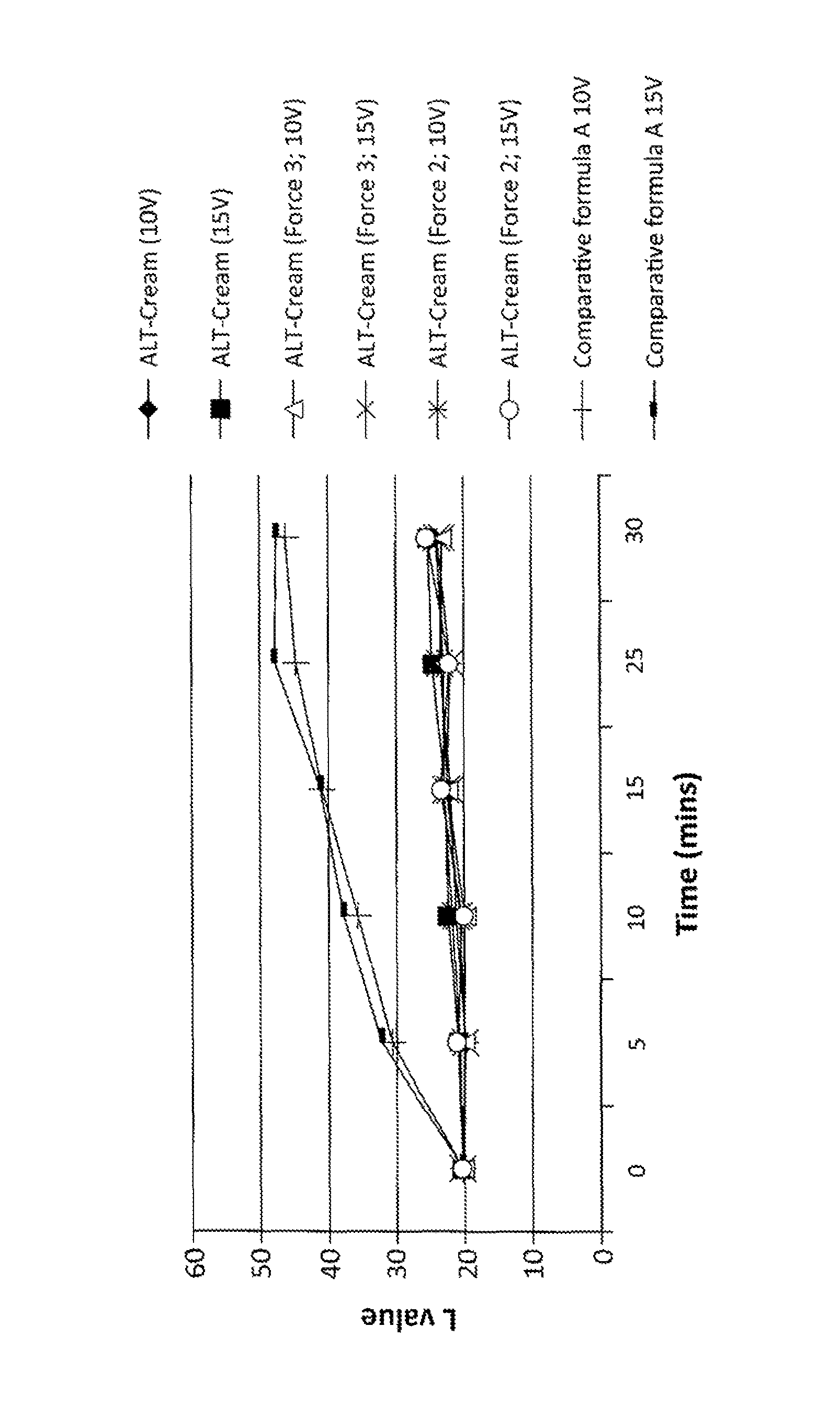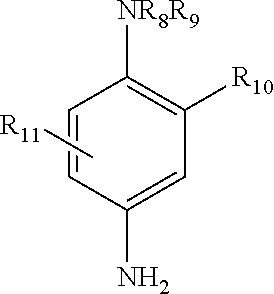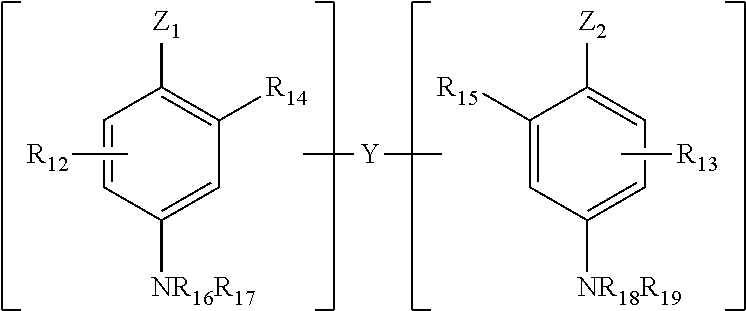Compositions and methods for altering the appearance of hair
a technology of composition and hair, applied in the field of composition and methods for altering the appearance of hair, can solve the problems of hair breakage and loss, adversely affecting the condition of hair and hair cuticle, skin and/or scalp irritation, and significant decrease in the quality of hair fibers, so as to minimize the problem, less harsh on hair and skin, and convenient and efficient
- Summary
- Abstract
- Description
- Claims
- Application Information
AI Technical Summary
Benefits of technology
Problems solved by technology
Method used
Image
Examples
example 1
Inventive
[0514]Bleach Composition:
[0515]
IngredientWt %POTASSIUM PERSULFATE45.00SODIUM PERSULFATE20.00EDTA0.70SILICA1.00XANTHAN GUM6.00POLYDECENE1.70pH ADJUSTER0.20%CORN STARCHQ.S. to 100.0
[0516]Developer Composition:
[0517]
IngredientWt %CETEARYL ALCOHOL (and) CETEARETH-252.85TRIDECETH-2 CARBOXAMIDE MEA0.85GLYCERINE0.50TETRASODIUM PYROPHOSPHATE0.02SODIUM STANNATE0.04PENTASODIUM PENTETATE0.15HYDROGEN PEROXIDE4.00DEIONIZED WATERQ.S. to 100.0
example 2
Comparative
[0518]Bleach Composition (Alkaline PH)
[0519]
IngredientWt %POTASSIUM PERSULFATE36.00SODIUM PERSULFATE11.50SODIUM SILICATE24.00AMMONIUM SULFATE5.00SODIUM METASILICATE2.00CORN STARCH6.25SODIUM LAURYL SULFATE4.00XANTHAN GUM2.50SODIUM STEARATE2.00HYDRATED SILICA1.75ACRYLATES / C10-30 ALKYL ACRYLATE1.00CROSSPOLYMERFRAGRANCE1.00PANTHENOL0.50EDTA0.25ULTRAMARINES0.25POLYDECENE2.00
[0520]Developer Composition:
[0521]
IngredientWt %CETEARYL ALCOHOL (and) CETEARETH-252.85TRIDECETH-2 CARBOXAMIDE MEA0.85GLYCERINE0.50TETRASODIUM PYROPHOSPHATE0.02SODIUM STANNATE0.04PENTASODIUM PENTETATE0.15HYDROGEN PEROXIDE4.00DEIONIZED WATERQ.S. to 100.0
[0522]Procedure:
[0523]Dark Brown (level 3) hair was relaxed using a traditional lye relaxer and processed according to the directions for 15 minutes. The hair was then rinsed with water. The color-altering composition of Example 1 was formed by mixing 13 grams of the bleach composition+30 grams of the developer composition and applied to the relaxed hair. Thi...
example 3
Bleach Composition in the Form of a Foam
[0535]
IngredientWt %POTASSIUM PERSULFATE45.00SODIUM PERSULFATE20.00EDTA0.70SILICA1.00XANTHAN GUM3.00SODIUM LAURETH SULFATE3.00POLYDECENE1.70pH ADJUSTER0.20%CORN STARCHQ.S. to 100.0
[0536]Following the procedure described in the previous examples for preparing the color-altering composition, the composition showed good spreadibility properties on the hair due to the presence of the surfactant in the bleach composition.
PUM
 Login to View More
Login to View More Abstract
Description
Claims
Application Information
 Login to View More
Login to View More - R&D
- Intellectual Property
- Life Sciences
- Materials
- Tech Scout
- Unparalleled Data Quality
- Higher Quality Content
- 60% Fewer Hallucinations
Browse by: Latest US Patents, China's latest patents, Technical Efficacy Thesaurus, Application Domain, Technology Topic, Popular Technical Reports.
© 2025 PatSnap. All rights reserved.Legal|Privacy policy|Modern Slavery Act Transparency Statement|Sitemap|About US| Contact US: help@patsnap.com



